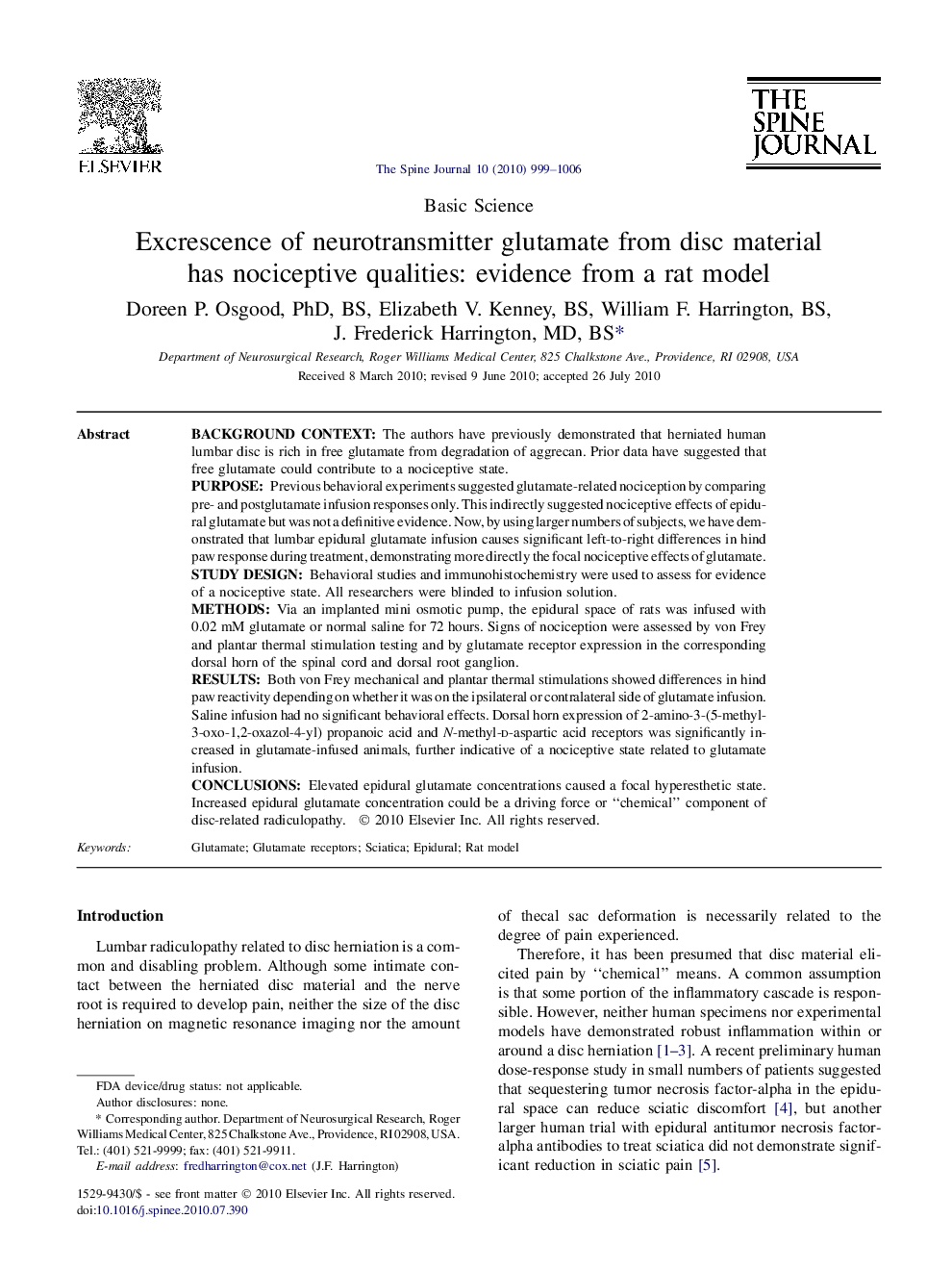| Article ID | Journal | Published Year | Pages | File Type |
|---|---|---|---|---|
| 4099465 | The Spine Journal | 2010 | 8 Pages |
Background contextThe authors have previously demonstrated that herniated human lumbar disc is rich in free glutamate from degradation of aggrecan. Prior data have suggested that free glutamate could contribute to a nociceptive state.PurposePrevious behavioral experiments suggested glutamate-related nociception by comparing pre- and postglutamate infusion responses only. This indirectly suggested nociceptive effects of epidural glutamate but was not a definitive evidence. Now, by using larger numbers of subjects, we have demonstrated that lumbar epidural glutamate infusion causes significant left-to-right differences in hind paw response during treatment, demonstrating more directly the focal nociceptive effects of glutamate.Study designBehavioral studies and immunohistochemistry were used to assess for evidence of a nociceptive state. All researchers were blinded to infusion solution.MethodsVia an implanted mini osmotic pump, the epidural space of rats was infused with 0.02 mM glutamate or normal saline for 72 hours. Signs of nociception were assessed by von Frey and plantar thermal stimulation testing and by glutamate receptor expression in the corresponding dorsal horn of the spinal cord and dorsal root ganglion.ResultsBoth von Frey mechanical and plantar thermal stimulations showed differences in hind paw reactivity depending on whether it was on the ipsilateral or contralateral side of glutamate infusion. Saline infusion had no significant behavioral effects. Dorsal horn expression of 2-amino-3-(5-methyl-3-oxo-1,2-oxazol-4-yl) propanoic acid and N-methyl-d-aspartic acid receptors was significantly increased in glutamate-infused animals, further indicative of a nociceptive state related to glutamate infusion.ConclusionsElevated epidural glutamate concentrations caused a focal hyperesthetic state. Increased epidural glutamate concentration could be a driving force or “chemical” component of disc-related radiculopathy.
